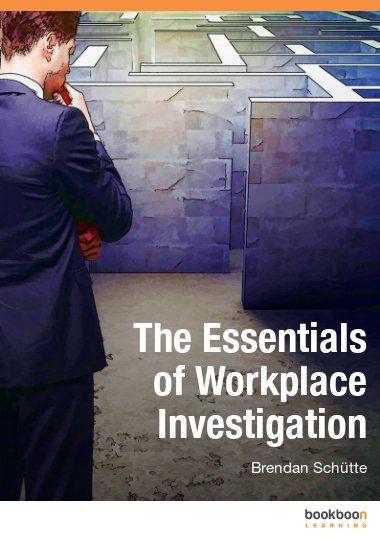‘The Essentials of Workplace Investigation’ is written by an experienced practitioner who brings a pragmatic approach told in a clear and understandable style.
The principles of what makes a best practice investigation are considered and explained, including the need for thoroughness, impartiality and consistency. Good preparation is key and tips on how best to prepare are provided along with the concept of an Investigation Diary, an invaluable tool to ensure everything is kept on track.
A sturdy five step process is presented and described in some detail. The need to remain neutral in approach and open to what is being heard is discussed. In addition to the process a range of skills are included, such as active listening, summarising, analysing, structuring and writing the report.
There is a chapter examining the common things that can go wrong in poor investigations.
While not overly legalistic in nature, the eBook does include consideration of a number of cases and defines terms such as the ‘Burchell Test’. It looks at where to find additional sources of information apart from interviews.
Takeaways include a succinct summary of best practice investigation and a range of templates to be used as is or customised to the reader’s requirements.

